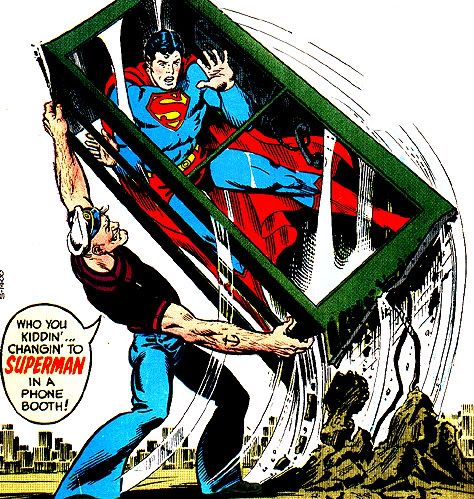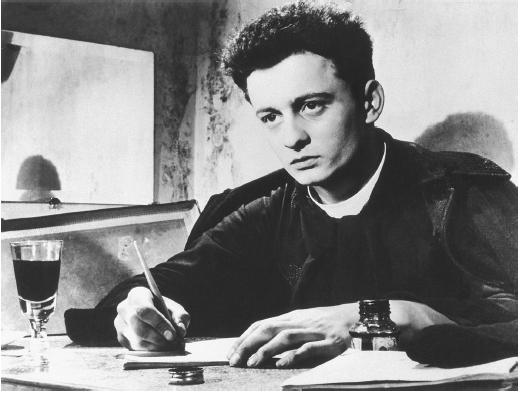
NOTE: This bit of blogging began as an email to a friend about inter-company crossovers in the comic universes of DC and Marvel. The discussion also included the related topic of the convoluted, universe-changing story arcs that both companies seem to like to put on from time to time. This is pure-geek territory and I would probably not include it on the blog, but I do discuss the nature of crossovers in terms of copyright issues and notion of the "sandbox," a free-play area where ideas can mingle without it being a "big deal." So the thoughts are pretty random and perhaps disorganized but I think they are a good starting place for a broader conversation about legitimate concerns for intellectual property and the right of creative people to mix-and-match cultural signs and signifiers a la mash-up culture. Indeed, Alan Moore's League of Extraordinary Gentlemen is most certainly a sandbox creation that is immune to the vagaries of a too-punitive copyright law only because the characters involved (Allan Quartermane, Mina Murray, Captain Nemo, the Invisible Man, etc.) are in the public domain. But what if one wanted to team James Bond with the Six Million Dollar Man? Or have Lara Croft meet Indiana Jones after she stumbles into a Tardis? Those crossovers would have to be preciptated by months if not years of negotionations with lawyers and accounts. The final agreement, if one were to ever be reached, would be anondyne, like the awful Alien vs. Predator film franchise. This short essay comes from a child's head-space, ultimately. It comes from a serious jones for "what if" ; a kiddie-hood of waiting for the annual Justice League/Justice Society team up from DC, and frantically scribbling away on drawing tablets trying to get Batman to punch Darth Vader. And, of course, it finds it's origins in the ancient debate between who-could-beat whom... could Superman lick Tarzan? Is Popeye stronger than Captain Marvel? Are the Lone Ranger and Zorro friends? Before I get to the article itself, I will leave you with this bit of wisdom from Mr. Moore:
"The planet of the imagination is as old as we are. It has been humanity's constant companion with all of its fictional locations, like Mount Olympus and the gods, and since we first came down from the trees, basically. It seems very important, otherwise, we wouldn't have it."--------------------------------------------------------------------------------------------------
The word that comes to mind when I think about DC and Marvel attempting these big arcs that promote inducements to purchase titles a collector would not normally purchase is "anodyne." Vision gets lost when one person brings it to a table with 20 other guys. The committee has to decide between:
1) doing nothing because the vision of one person is pure and no one else can agree whether the continuity to should be altered in a certain direction;
2) doing something that takes into account about 1% of everyone's "stake" in the plan;
Obviously, when you do #2... it's just shit! Watered down, compromised, and the vision is totally lost.
Secret Wars was a terrible series but I don't think the Marvel folks wanted to do much more than make toy profits. I actually thought Contest of Champions was a more interesting project. Squadron Supreme (though the writing was terrible) was an example of true vision because it was under the radar. Gruenwald couldn't do a JLA storyline and The Avengers was not on offer so he used these forth-and-fifth string heroes from a different non-mainline continuity to play in his sandbox and explore the various things that can happen when power if given to and taken by super humans.
Crisis on Infinite Earths, perhaps the most ambitious crossover project in comic's history, was an attempt to create a DCU for the next fifty years (well, from 1985 onward). DC has purchased all these different comic book universes (Fawcett, Charlton, etc.) and had to integrate them into their already complicated multiverse of duplicate continuities (two of each major hero... overlapping origins... I mean, Hawkman's story is out of control!).
The multiple Earth's concept (I felt/feel) worked because it allowed for variations on a theme. You had aging and even dying superheros (Batman), heroes who could live alternate lives in variance to their "mainline" (i.e. "Earth 1") counterpart, and options for occasional crossovers (the annual JLA/JSA teams ups). It was sort of a "have your cake and eat it too" scenario.
On a personal level, I adored the idea of mainline heroes meeting legacy heroes - Superman meeting Superman; Alan Scott meeting Hal Jordan; Al Pratt meeting Ray Palmer... and even having competing "legacies" meeting each other - Superman meeting Captain Marvel. It was murky and difficult to keep up with (and harder to explain to outsiders!) but it made for compelling reading. Also, it reflects (I believe) the way life actually is... the patterns are there, but it looks pretty chaotic on the surface.
But Crisis, if anything, was too short, and not altogether respectful of legacy heroes. Superman and Batman are totally forgotten in favor of their bronze age counterparts... the Earths are collapsed into one Earth, thus negating decades of story lines which could have been sorted out better on an ad-hoc basis. I mean... it's a fictional universe... they could have come up with a better solution simply through by letting individual, writers, and artists come up with plot points!
So twenty three years on what do we have? We've seen the advent of Elseworlds which is... the mulitiverse under another name! We've had another Crisis series and at least one major clean-up series (52)... thus recreating the Crisis/Legends paradigm of the late 1980s. Now, the DCU has... another multiverse that is more complex that includes not only the mainline Earth but also the Wildstorm continuity, the Kingdom Come heroes, and even the animated universe.
Why has this gone down? Because it opens up avenues for crossover and merchandising. The Red Son Superman story has generated dozens of statues, posters, action figures... and it is only a matter of time before there is a crossover with the mainline hero.
Maybe in a decade or so DC will blow itself up again. It is the way of things. It's like Hindu mythology... cycles of creation and destruction. It is, after all, a modern, pop cultural mythology.
I believe there should be a space for universal crossovers in the fictional world. A space where copyright is intact but trademark is loosened enough so that creators can mix and match... We've seen DC/Marvel and Aliens/Predator. Star Trek/Star Wars would be a good place to go next. How about Indian Jones vs. Predator? Or how about James Bond meeting Jason Bourne? How about the gang from Lost finding their way to the Lost World? Starfleet vs. The Green Lantern Corp? Darth Vader makes an Alliance with The Cylons? A lot of this already happens in fan-fiction. It doesn't dilute the characters at all. Batman has been involved in so many crossover scenarios (Dracula... Predator... Punisher) that it's hard to keep track. It doesn't affect the mainline continuity . Batman can kill Superman but that won't affect them teaming up to form yet-another incarnation of the Justice League. Wonder Woman can have that lesbian affair with Seven-of-Nine... why not? A Golden Age Spider-Man (webgun... suction cups... is a teen detective) run afowl of The Bat-Man when his case takes from New York City to Gotham...
Of course, if the artists/creator owns the work (rather than these semi-public domain icons like Superman, Spiderman) than that should be respected... but at some point, a character grows up and leaves the nest. Siegel and Schuster's Superman didn't fly! Fortunately, he's developed over the decades...been powered and de-powered over and over again... Composers write the music and the musicians play variations... they do "covers," they play in the sandbox!
------------------------------------------------------------------------------------------------




